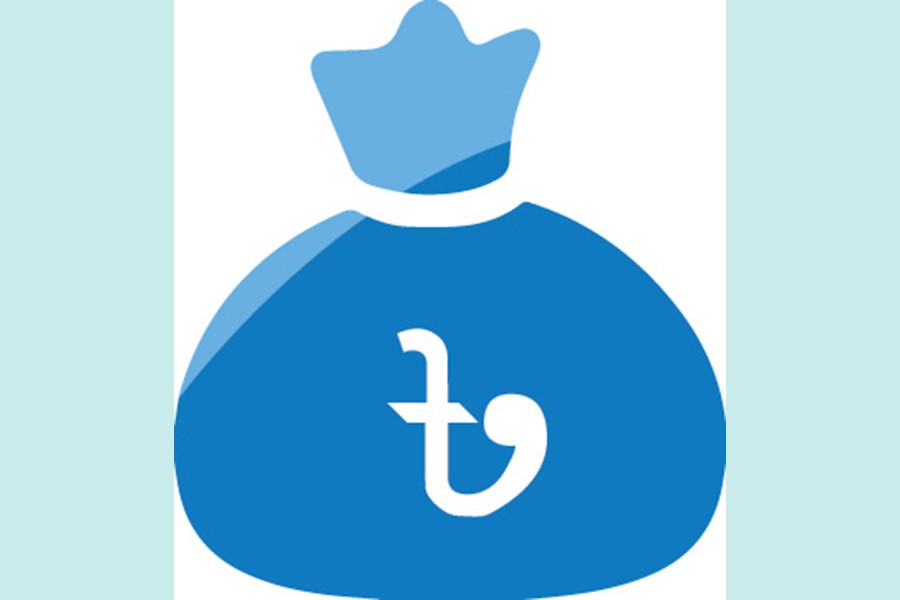Keeping inflation within a tolerable level and stabilising foreign-exchange rate would be the key challenges of the monetary policy for the current fiscal year (FY 2022-23), economists said at a programme on Thursday.
They suggested the government promote private-sector growth for job creation, encourage production of import-substitute products, manage energy efficiently, and strengthen market monitoring to tame inflation.
Besides, they favoured banning import of luxury items for at least six months instead of only increasing the LC (letter of credit) margin and import duties to save foreign currency.
The experts put forward the suggestions at a seminar on "Monetary Policy for FY 2022-23 in the Current Economic Context", organised by the Institute of Chartered Accountants of Bangladesh (ICAB) at its office in the city's Karwanbazar.
Planning Minister Dr Shamsul Alam addressed the programme as chief guest while former chairman of National Board of Revenue (NBR) Dr Muhammad Abdul Mazid, South Asian Network on Economic Modeling (SANEM) executive director Dr Selim Raihan, Business Initiative Leading Development (BUILD) CEO Ferdaus Ara Begum, Bangladesh Institute of Capital Market (BICM) Executive President Professor Dr Mahmuda Akter, among others, spoke at the event.
In his speech, the minister said the monetary policy has been placed recently amid a very sensitive time when the country has been facing challenges due to the inflation caused by external forces.
Terming the inflation and unemployment the two big illnesses of the economy, he said the monetary policy for the current fiscal took some contractionary measures to deal with these problems.
"The inflation has increased mostly for import-dependency on many products as the global economy has been seeing high inflation caused by the pandemic, energy price increase and the recent Ukraine-Russia war," he said.
To reduce the food inflation, the government has lifted restrictions on importing rice which may soon have an impact on the market, he also said.
However, expressing disagreement on the suggestion of banning import of some luxury products, Mr Alam said complete ban on import may give the wrong message to the overall business environment.
Mentioning the existence of syndicates in the country's banking sector that are responsible for ruining good competition, he said: "The cap on interest rate in the banking sector should continue as usual because open market policy will not work unless those cartels are disbanded."
Earlier in the discussion, Dr Raihan opined that the 6.0 per cent interest rate cap on deposits and 9.0 per cent on loans should be lifted to increase deposits in banks so that the bank can give more loans to the private sector.
Due to the fixed interest rates, he said the banks prefer established businesses to give loans while new and potential ones have been struggling to find loans from the banking sector.
Raising questions on the government's policy of controlling bank interest rates while leaving the foreign exchange rate floating, he said, "I am not sure how these conflicting measures can tame inflation."
He recommended temporary removal of VAT and tax on daily commodities to ease general people's suffering from inflation while the coverage of social safety net programmes can bring some good results too.
Dr Mazid said Bangladesh's economy is influenced by many external factors due to its import-dependent nature where the government has only a few options to intervene.
As part of preventing the fall of foreign exchange reserves, the central bank has recently lifted the condition of document submission, for inward remittance of US$ 5,000 and above, to get the 2.5 per cent incentive.
Though the incentive on remittance was announced to encourage the expatriate workers to send their hard-earned money via formal banking channels, remittance inflow has been showing a downward trend for the last few months, he added.
To save foreign reserves, he also proposed to impose a complete ban on import of some luxury items for at least six months.
The Bangladesh Bank (BB) has announced its Monetary Policy Statement (MPS) for the period of July-December 2022 on June 30.
The ICAB president Md Shahadat Hossain presided over the session while former ICAB president Md Humayun Kabir moderated the event and ICAB CEO Shubhashish Bose gave the welcome speech.


